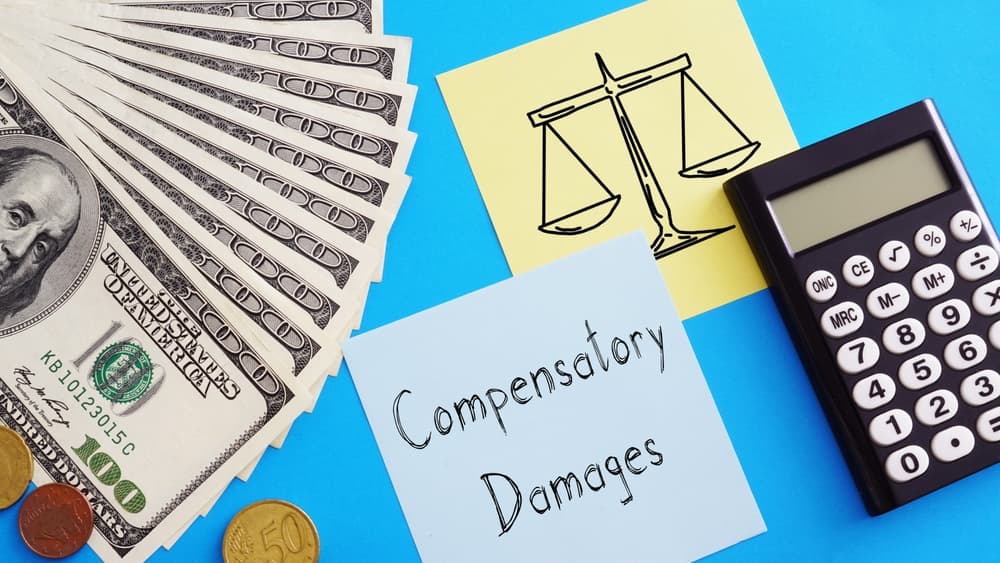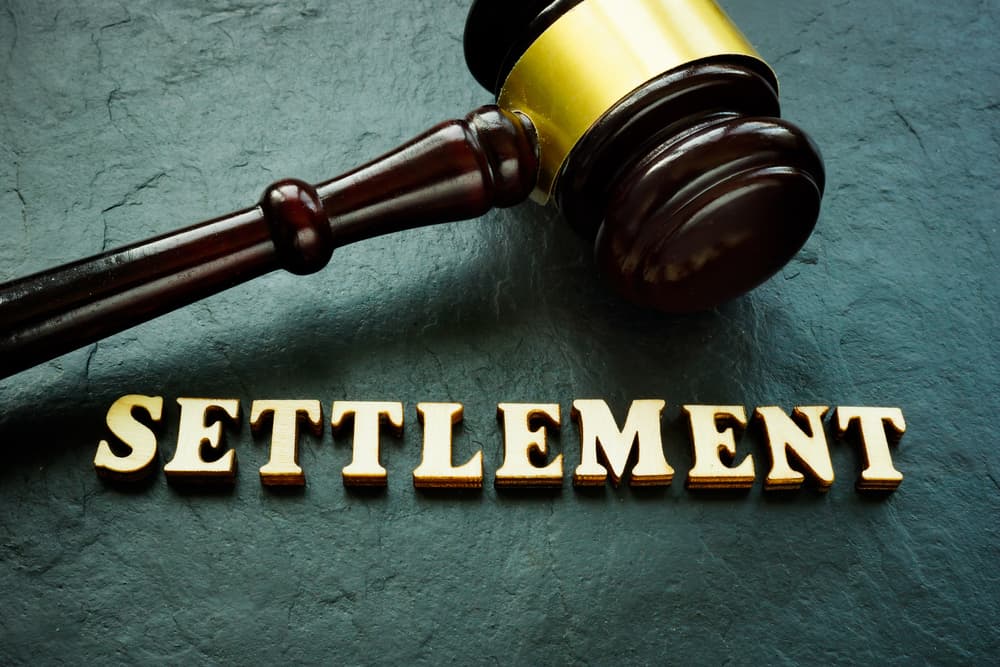When individuals or entities commit negligent actions, serious accidents and injuries may result. In those circumstances, accident victims may be eligible to recover damages, including compensation for their lost earnings, medical expenses, and pain and suffering.
When selecting a personal injury attorney, you want a lawyer with significant experience in favorably overseeing, settling, and litigating personal injury claims and lawsuits. Your attorney can manage every step of the legal process for you, putting you in a position to maximize your overall financial settlement or award.
Types of Personal Injury Cases That Result from Negligence

Personal injury cases arising from the negligence of others include a broad range of scenarios, each presenting legal challenges and considerations.
Traffic Crashes
One common category involves motor vehicle accidents, where reckless or distracted driving leads to severe injuries. Head-on collisions, rear-end accidents, and drunk driving crashes are common consequences of negligent behavior on the road, often resulting in life-altering consequences for victims.
Collisions can involve many types of vehicles and parties, including:
- Cars
- Commercial trucks
- Buses
- Pedestrians
- Cyclists
- Motorcyclists
Distracted driving, impaired driving, violating traffic laws, and more are all examples of negligence that can lead to injuries and personal injury claims.
Property-related Accidents
Many personal injuries happen due to property hazards, whether at a business or on someone’s residential property. Premises liability law holds property owners accountable for injuries sustained on their premises due to negligence maintenance or security.
For example, slip and fall accidents can happen due to hazards that owners allows and fail to address. Poorly maintained structures can lead to other accidents, such as balcony collapses.
Assault cases may also result in personal injury claims when negligence by property owners or security personnel contributes to an unsafe environment. Victims of assault may seek compensation for the injuries they suffered due to inadequate security measures or negligence in preventing foreseeable harm by business owners.
Work Accidents Due to Third-Party Negligence
Workplace accidents are common in every industry, often resulting from the negligence of others. While the law restricts employees from taking legal action against employers, they can file personal injury claims against any negligent third parties who led to the accident and injuries.
Such parties can include other drivers on the road, contractors, vendors, or anyone else not affiliated with an employer who acts unreasonably to cause an injury.
Dog Bites
Dog bites and animal attacks represent another category of personal injury law, where owners are accountable for the injuries their pets cause. Negligence in restraining or controlling aggressive animals may result in legal consequences for the pet owner.
Navigating these different personal injury cases requires a thorough understanding of the specific circumstances, applicable laws, and a strategic approach to building a compelling case. As victims seek compensation for medical expenses, lost income, and emotional distress, personal injury lawyers are important in advocating for victims' rights and holding negligent parties accountable.
Injuries Due to Others' Negligence
Negligence by individuals or entities can lead to a variety of mental and physical injuries, profoundly affecting the lives of victims.
- In motor vehicle accidents, where negligence is often a key factor, victims may endure severe physical trauma. From fractures and spinal injuries to concussions, the repercussions can be extensive, imposing not only physical pain but also significant financial burdens for medical treatment and rehabilitation.
- Workplace accidents stemming from third-party negligence expose employees to both physical and mental harm. Sudden on-the-job accidents can lead to severe injuries, such as burns, amputations, or chronic conditions, causing not only physical pain but also mental distress as individuals deal with the long-term consequences on their well-being and livelihoods.
- Premises liability cases highlight the connection between negligent property maintenance and various injuries. Slip-and-fall incidents, often resulting from negligent upkeep, can cause fractures, head injuries, or even long-term disabilities. Emotional distress often accompanies these injuries as victims cope with the aftermath of an incident that proper care and attention to safety may have prevented.
- Assault cases, whether physical or verbal, show how negligent security or property owners can contribute to mental and physical harm. Victims of assault may endure not only physical injuries but also psychological trauma, leading to anxiety, depression, or post-traumatic stress disorder.
- Dog bites and animal attacks present another component of negligence-related injuries. Owners failing to control or restrain their pets can lead to both physical harm, such as wounds and infections, and mental distress, as victims grapple with the fear and anxiety resulting from the attack.
Experienced personal injury lawyers are crucial in navigating these cases, advocating for victims' rights, and seeking compensation for tangible and intangible losses resulting from others' negligence.
What Are the Most Important Qualities of a Good Personal Injury Lawyer?
A good personal injury lawyer possesses a unique set of qualities that distinguishes them in the legal profession and ensures effective representation for their clients. Qualities of a skilled personal injury attorney that you should consider include:
- Communication Skills — Communication skills are essential, enabling the lawyer to explain complex legal concepts clearly and understandably. This quality allows for transparent and open communication with clients, helping them understand the intricacies of their cases and make informed decisions.
- Empathy — Empathy is another crucial quality, allowing a good personal injury lawyer to connect with clients personally. Understanding the physical and emotional toll of an injury and the financial and lifestyle implications empowers the lawyer to advocate passionately for their client's best interests. Empathy contributes to building trust, which is an essential foundation for a strong attorney-client relationship.
- Legal Knowledge and Experience — Thorough legal knowledge and experience in personal injury law form the backbone of effective representation. A competent lawyer stays abreast of new legal developments, understands the nuances of liability, and can strategically navigate the complexities of personal injury cases. This experience enables them to craft compelling arguments, anticipate challenges, and pursue the best possible outcomes for their clients.
- Negotiation Skills — Negotiation skills are also essential for personal injury lawyers. Lawyers resolve many cases through negotiation, and a skilled negotiator can secure favorable settlements without lengthy litigation. A good lawyer can effectively communicate the value of their client's claim and negotiate for fair damages.
- Tenacity and Resilience — Tenacity and resilience are vital qualities for attorneys, given the often challenging and emotionally charged nature of personal injury cases. A determined lawyer persists in pursuing justice, and this resilience is essential for staying committed to a client's cause throughout the entire legal process.
- Organizational and Time Management Skills — Organizational and time management skills are crucial for personal injury lawyers handling cases simultaneously. Efficiently managing documentation, deadlines, and court appearances ensures that each case receives the attention it deserves, maximizing the chances of a favorable outcome.
- Integrity — Integrity is the cornerstone of a good personal injury lawyer. Upholding ethical standards, maintaining transparency, and prioritizing the client's best interests over personal gain bring about trust and credibility, making the lawyer a reliable advocate.
How Can a Personal Injury Lawyer Help with Settling or Litigating My Case?
A personal injury lawyer is pivotal in guiding you through settling or litigating your case, providing valuable assistance at every stage.
- From the beginning, the lawyer conducts a comprehensive review of your case, assessing the extent of negligence, gathering evidence, and determining liability. This careful examination forms the foundation for building a strong and compelling claim or lawsuit.
- When settling your case, a skilled personal injury lawyer actively negotiates with insurance companies and opposing parties, drawing on their experience to achieve the best possible outcome for you. Their knowledge of personal injury law, coupled with experience in similar cases, positions them to evaluate the fair value of your claim.
- Through effective communication and negotiation strategies, a personal injury lawyer works to secure a settlement that adequately compensates you for medical expenses, lost income, and other damages. This negotiation phase often involves presenting evidence, crafting persuasive arguments, and leveraging their understanding of legal precedents to achieve the best possible outcome without a lengthy legal battle.
- In cases where the parties cannot reach a settlement, a personal injury lawyer quickly transitions into the litigation phase. They file the necessary legal documents, initiate court proceedings, and represent you at hearings and trials. Litigation involves rigorous legal processes, and a skilled attorney is well-versed in presenting your case before a judge and jury. They can present compelling arguments, cross-examine witnesses, and navigate complex legal procedures to build a persuasive case on your behalf.
- A personal injury lawyer provides essential support by managing paperwork, ensuring compliance with legal timelines, and communicating with opposing parties throughout the entire settlement or litigation process. Their experience navigating the legal system helps alleviate the stress and complexities of pursuing a personal injury claim.
- Moreover, a personal injury lawyer can provide valuable insights into the potential outcomes of your case, helping you make informed decisions about settlement offers or pursuing litigation. Their experience allows them to anticipate challenges and devise approaches to overcome legal obstacles, increasing their chances of achieving a favorable resolution.
A personal injury lawyer is your advocate, guiding you through the complexities of settling or litigating your case in the court system. Their experience, negotiation skills and commitment to your best interests contribute significantly to achieving a fair and just resolution for the harm you endured due to someone else's negligence.
Types of Monetary Damages

Accident victims pursuing a personal injury claim or lawsuit may be eligible for various types of damages, encompassing a range of losses incurred due to the negligent actions of others. Accident victims may pursue compensation for the following:
- Medical Expenses — Compensation for past and future medical expenses is a fundamental component, addressing the costs associated with immediate medical treatments, ongoing care, and potential future medical needs arising from the injuries sustained in the accident.
- Lost Earnings — Past and future lost earnings represent another crucial element of monetary damages. This compensation accounts for the income that the victim has already given up due to the accident and the potential future earnings they may lose due to their injuries.
- Loss of Earning Capacity — Loss of earning capacity, distinct from lost earnings, factors in the long-term consequences on the individual's ability to earn a living, considering career limitations or diminished capacity to work.
- Pain and Suffering — Compensation for past and future pain and suffering recognizes the physical discomfort and emotional distress the victim experienced. This category of damages goes beyond direct economic losses and considers the intangible aspects of the victim's suffering.
- Mental Distress — Mental distress damages acknowledge the emotional toll the accident inflicted. Victims may be eligible for compensation related to psychological trauma, anxiety, depression, or other mental health issues resulting from the occurrence.
- Lost Quality of Life — The lost quality of life compensation addresses the adverse effects on the victim's overall enjoyment of life due to the injuries sustained. This encompasses limitations on daily activities, hobbies, and recreational pursuits that were once a part of their lifestyle.
- Loss of the Ability To Use a Body Part — Loss of the ability to use a body part, permanent disability, or disfigurement may warrant additional compensation, acknowledging the lasting physical consequences and alterations to the victim's appearance.
- Inconvenience — Inconvenience damages recognize the disruptions to the victim's life, encompassing the inconvenience of medical treatments, lifestyle adjustments, and the overall disturbance to their routine.
- Loss of Consortium — Loss of consortium refers to damages a spouse or family member receives for the deprivation of companionship, affection, or support resulting from the victim's injuries.
Each category of damages addresses the effects of the accident on the victim's life, ensuring that they receive just compensation for the losses they incurred due to the negligence of others.
Speak with a Personal Injury Lawyer in Your Area Today
If you sustained injuries in an occurrence that a negligent individual or entity caused, a skilled personal injury attorney can guide you with every step of the legal process. A good lawyer can promptly evaluate your claim and the likely settlement or verdict value. Your attorney can manage every step of the settlement negotiation or litigation process, enabling you to recover the compensation you deserve.



